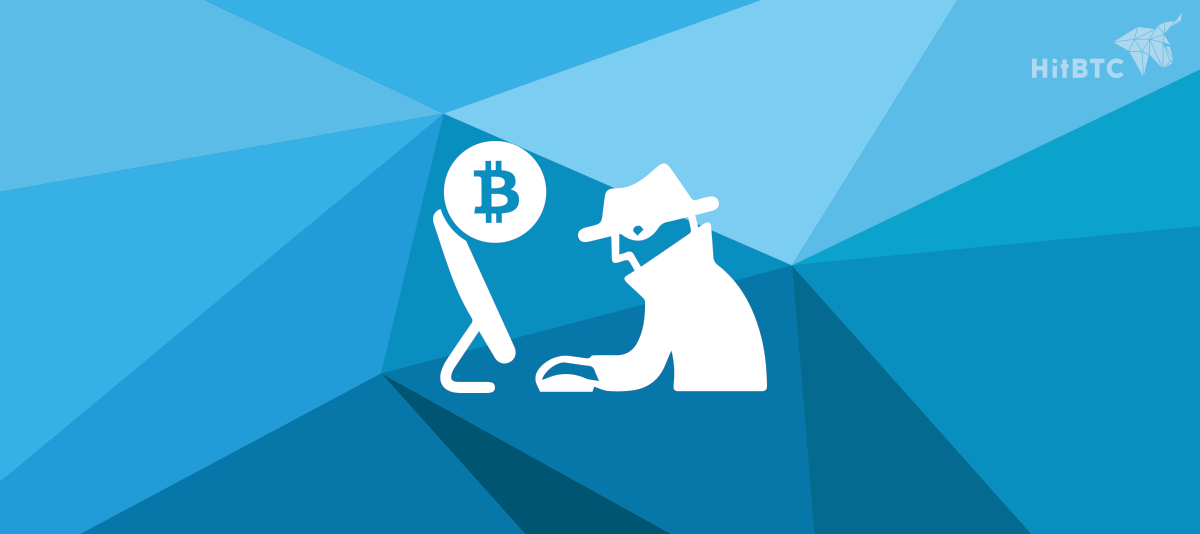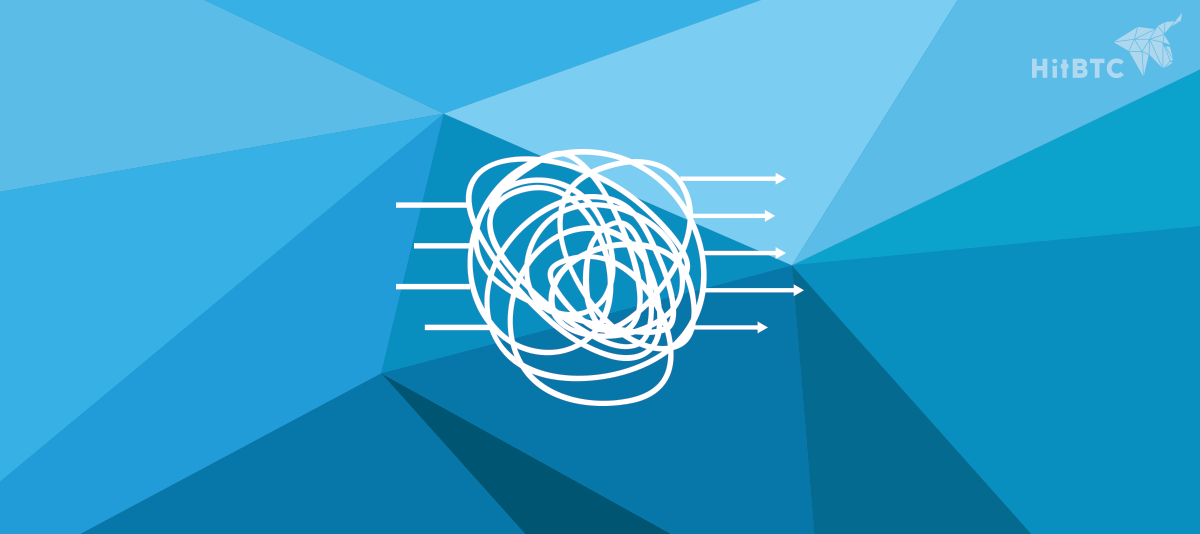Bitcoin Anonymity - What is It All About ?

There is a common belief that Bitcoin transactions are anonymous and untraceable. In addition to that many are still cautious of Bitcoin because of the common opinion that it might be used for shady or criminal transactions. One can understand where these concerns may come from – most of you remember Silk Road. To those who don’t, Silk Road was essentially the Ebay for criminals. Pretty clever in the sense. You could buy drugs, guns or order a hitman. However that party is long over as the FBI shut Silk Road down back in October 2013 and the founder Ross William Ulbricht is serving life in prison.
Probably because of Silk Road and previous instances with other digital payment options prior to Bitcoin. These were widely used for money laundering many countries’ legislators are a bit cautious or even scared of Bitcoin. I came across this in personal experience with my home country’s AML bureau and the Ministry of Finance. Their main concern was the anonymity of Bitcoin. I was a bit confused by this as if they had done some actual research into Bitcoin they would know that Bitcoin is not really anonymous at all. Quite the opposite in fact.
Is Bitcoin really anonymous?
- Transactions are recorded in blockchain
- Transactions cannot be removed
- Transactions are public
To be honest the statement that Bitcoin is anonymous is far from being correct. With Bitcoin you are basically showing anyone all of your transactions. Transparency is one of the building blocks of blockchain – all of the transactions ever made will be recorded in blockchain. They cannot be altered, changed or deleted. All the transactions are public. They are totally traceable and stored in the Bitcoin network, forever. Makes you wonder what the governments and AML bureaus are so scared of. They should be promoting it really.
Most people might not understand this and might not be used to using something with such low levels of privacy. Now I’m not saying that everyone will know who personally made these transactions. The information stored is not your full address, first name or last name. It is your Bitcoin address you’ve used. The address that is created by your wallet. In this sense it is anonymous. You cannot possibly be identified by a row of 26-35 alphanumeric characters.
That is true until you make a transaction with your address. Once it’s been used it essentially becomes “tainted”. And can then be linked to other addresses that it has been transacting with.
Anyone can see the balance of a certain address and on top of that all the transactions. And as normally at some point you will need to link your personal details to the address for example when making a purchase, Bitcoin cannot remain totally anonymous. This is why it is advised to use your Bitcoin addresses only once and be cautious of where and how you give out your details.
Should I be cautious of this pseudo-anonymity?
Not really. Unless of course you are smuggling guns or supporting terrorism. I wouldn’t really recommend Bitcoin to criminals as their preferred option for transacting and moving money around as like I’ve just explained above – we can all see your transactions. As a regular user with nothing to hide you have nothing to be afraid of also.
A lot of people I’ve explained this have suddenly become scared. Can I become subject to fraud? Will my neighbour know how much money I’ve got ? Fraud – no. Your neighbour could know your balance if you gave them your address and if you’ve only ever used one address for all of your transactions. But hey – don’t give your main address to someone you don’t trust and you’ll be okay. I’d also like to point out that the main way of transacting nowadays is still via bank accounts and credit cards. Credit cards are from the 1950’s and are notoriously unsafe still. Why? Because with your credit card number your full name and address are also linked. That is not ideal now, is it? Yet we all still use it. And credit card fraud happens frequently.
On a daily basis.
How to protect my privacy
- Use your address only once
- Transfer different amounts
- Don’t give out your addresses to strangers
- Use mixing services or tumblers
Yes – generating a new address for every transaction could be quite annoying. Also to mix your tracks you should always move different amounts around. You could also use a mixing service. What they essentially do is take your funds and “mix it” with someone else’s. Mixing services then send back the same amount but in different amounts. Be cautious though before handing over your coins, you need to make sure this is a legitimate service, not someone who will make a run for it with your coins. Also when doing this with very large amounts you could run into conflict with some AML agencies who might want to ask you some questions.
Altcoins with higher levels of anonymity & privacy
If you are looking for something that gives you more privacy then one of the most popular and used coins is Dashcoin. Dashcoin is a fork of Bytecoin and uses the algorithm Cryptonite. It is based on Cryptonote technology. Dashcoin is completely anonymous and that is achieved through using ring signatures. Some other coins based on Cryptonote are also Bytecoin, Monero, Digitalnote and Dosh. You can buy and trade Dashcoin, Bytecoin and Monero on our exchange.
There’s also Dash(formerly known as Darkcoin. Not to be confused with Dashcoin, they are not the same thing. That is easily done, I too sometimes get a bit confused). Dash uses a coin-mixing service Darksend. It uses a method of pre-mixing denominations that are built into the user’s wallet. How it works is it combines identical inputs from many different users into one single transaction that has several outputs.
In addition to Dash there’s also Anoncoin. Anoncoin is a decentralized peer-to-peer cryptocurrency like most other cryptocurrencies. What makes Anoncoin unique are its levels of privacy and also its ability to resist hostile attacks and crackdowns from authorities. Because Anoncoin’s transactions are sent through the I2P or Tor Darknets, using Anoncoin can make your location untraceable. Anoncoin’s philosophy is anti internet censorship and they have been taking part in leading internet privacy initiatives for a long time now. Anoncoin was developed for activists, journalists, dissidents or anyone who care about keeping their business private.
On top of Anoncoin Zerocoin is also being developed. Zerocoin was initially supposed to be an extension that would add privacy to Bitcoin. However the developers have decided to implement this in Anoncoin instead. How Zerocoin works is essentially like a money laundering pool and will not rely on third parties at all. Although other coins already use laundering pools, what makes Zerocoin different is that it would implement it at the protocol level. Its higher anonymity comes from using cryptographic principles and documents these transactions in the blockchain. Dissimilarly to most mixing pools, Zerocoin’s pool consists of all Zerocoins.
Should I be concerned?
If you are just a normal user I wouldn’t worry too much though to be honest. As Bitcoin is going mainstream I’m sure there will soon be solutions for these issues. But transacting as a legit person you will still need to reveal your identity to transact. This is because companies and merchants need to adhere to anti-money laundering and know your customer regulations.
Also when trading I’m sure you are aware that your broker will ask you to identify yourself. We here at HitBTC also have to adhere to the same rules as a financial institution. If you are trading with fiat currencies there are no ways around it. However it’s a different story when you are only trading cryptos. We will not ask for your ID if fiat currencies are not involved.
If you must remain anonymous at all cost then there’s another way. Just use cash.

